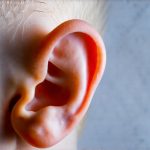The human body is an astonishingly adaptable system, capable of enduring remarkable stresses – yet even with this inherent resilience, disruptions to our routines often leave us feeling less than optimal. Travel, in all its forms, presents a classic example; whether soaring across time zones, braving rough seas, or simply navigating unfamiliar foods, the consequences can manifest as jet lag, digestive distress, or debilitating motion sickness. While we frequently attribute these ailments to factors like circadian rhythm disruption or inner ear imbalances, there’s growing evidence pointing towards a less visible player: our microbiome – the vast community of microorganisms residing within us. This intricate ecosystem profoundly influences many physiological processes, and its delicate balance can be severely impacted by travel-related stressors, ultimately exacerbating these common travel woes. Understanding this connection is crucial for developing more effective strategies to mitigate these discomforts and enhance overall well-being during and after journeys.
The gut microbiome isn’t merely a passive bystander; it actively participates in regulating everything from immune function and nutrient absorption to neurological health and even our emotional state. Travel, however, introduces multiple layers of disruption. Changes in diet, sleep patterns, stress levels, and exposure to new environments all contribute to shifts in the microbial composition. These alterations can compromise the gut’s ability to effectively perform its critical functions, leaving us vulnerable to a cascade of negative effects. It’s not simply that travel causes these problems; it’s that travel often destabilizes our microbiome, making us more susceptible to them. Recognizing this intricate interplay allows for a more holistic approach to managing the challenges inherent in travel and restoring microbial harmony. You might even consider food rotation to help with sensitivity.
The Gut-Brain-Travel Axis: Jet Lag & Microbial Influence
Jet lag isn’t solely about clocking misalignment; it’s also about systemic stress that impacts gut health, creating a vicious cycle. Rapid time zone crossings disrupt the natural rhythms of our bodies, including the circadian rhythm of the microbiome. Our microbial communities actually have their own daily cycles, mirroring our sleep-wake patterns and influencing hormone production. When these are thrown off kilter, it can lead to increased intestinal permeability – often referred to as “leaky gut” – allowing bacterial byproducts to enter the bloodstream and trigger inflammatory responses. This inflammation further exacerbates jet lag symptoms like fatigue, cognitive impairment, and mood disturbances.
The connection between the gut and brain, known as the gut-brain axis, is bidirectional. A healthy microbiome promotes optimal brain function while a dysbiotic one can contribute to neurological symptoms. Travel stress – including sleep deprivation, altered diets, and psychological anxiety associated with travel – all negatively impact microbial diversity. This reduction in diversity weakens the gut’s protective barrier, increasing susceptibility to inflammation. Moreover, the changes in dietary habits during travel (often involving processed foods, sugary drinks, or unfamiliar cuisines) provide less nourishment for beneficial bacteria, further contributing to dysbiosis and disrupting the gut-brain communication pathway. If anxiety is playing a role, remember how anxiety and panic can manifest physically.
Therefore, simply adjusting sleep schedules may not be enough to overcome jet lag effectively. Supporting the microbiome before, during, and after travel can significantly reduce its severity. Strategies like incorporating probiotic-rich foods (or supplements) into your diet, maintaining hydration, managing stress through mindfulness techniques, and gradually introducing time zone shifts before departure can all help buffer the impact on your gut health and minimize jet lag symptoms. The key is to view jet lag not just as a sleep issue but as a systemic disturbance where microbial balance plays a critical role. Emotional regulation can also play a vital role in managing stress levels during travel.
Digestive Shock: Travel & Microbial Disruption
Digestive shock, often experienced when traveling to regions with vastly different food preparation practices or sanitation levels, isn’t always caused by pathogens. While “traveler’s diarrhea” is a common concern, even without experiencing acute illness, changes in dietary fiber intake, water quality, and the introduction of novel food compounds can profoundly impact the microbiome. This disruption leads to altered digestion, bloating, gas, constipation, or diarrhea – all symptoms of digestive distress. The gut’s ability to adapt to these sudden changes is directly influenced by its baseline microbial diversity.
- A robust microbiome with a wide range of species is better equipped to handle dietary shifts and maintain digestive function.
- Conversely, a depleted microbiome lacks the necessary enzymatic capabilities to efficiently process new foods or cope with potential irritants.
- This can result in malabsorption, inflammation, and increased intestinal permeability, worsening digestive symptoms.
Furthermore, stress associated with travel – anxiety about food safety, unfamiliar environments, or simply the logistics of traveling – further compromises gut function. Stress hormones like cortisol directly impact the microbiome composition, reducing beneficial bacteria and promoting the growth of potentially harmful ones. Therefore, even if you avoid obvious sources of contamination, the act of travel itself can contribute to digestive upset by disrupting microbial balance. If a flare-up occurs during your travels, knowing how to manage it is essential.
Motion Sickness & The Gut-Vestibular Connection
Motion sickness isn’t just about inner ear imbalances; emerging research suggests a strong link between gut health and vestibular function – the sensory system responsible for maintaining balance. Studies are revealing that the microbiome influences vagal nerve activity, which plays a crucial role in transmitting signals between the brain and the digestive system and the vestibular system. An imbalanced microbiome can disrupt these signaling pathways, contributing to increased susceptibility to motion sickness.
The gut-vestibular connection is complex. Inflammation caused by microbial dysbiosis can heighten sensitivity to movement and exacerbate symptoms like nausea and vomiting. Moreover, changes in gut motility – influenced by the microbiome – can affect vagal nerve stimulation and contribute to feelings of discomfort during motion. Interestingly, some individuals with a history of digestive issues or irritable bowel syndrome (IBS) are more prone to motion sickness, suggesting a shared underlying mechanism related to gut health.
Ultimately, understanding the profound influence of our microbiome on these common travel ailments allows us to adopt a more proactive and holistic approach to wellness while exploring the world. It’s not just about managing symptoms; it’s about fostering microbial resilience and ensuring that our internal ecosystem can adapt to the challenges inherent in travel. Consider how fermented foods might impact your gut during travel, both positively and negatively.
A warm bath can also help calm digestive discomfort following travel.


















